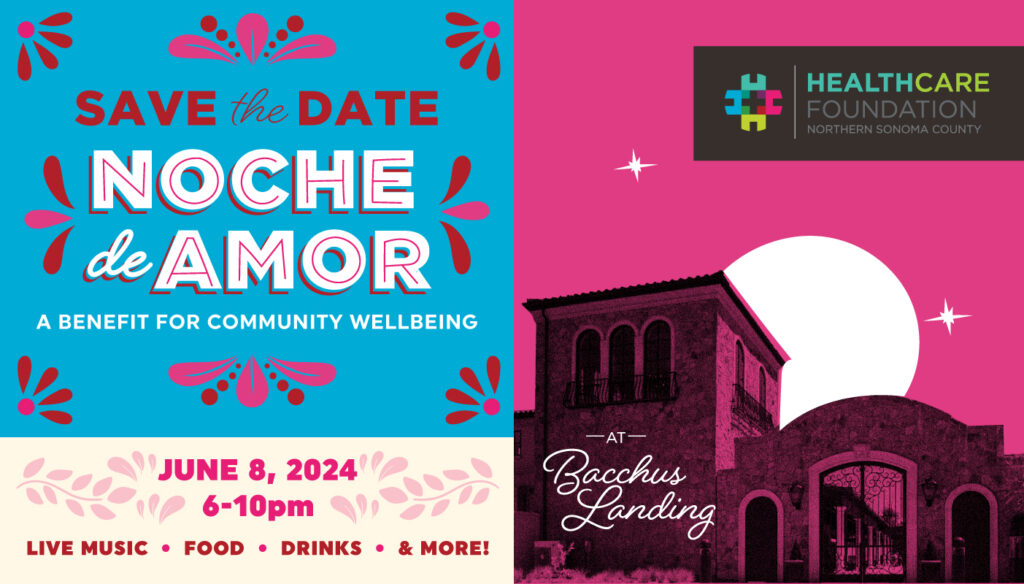
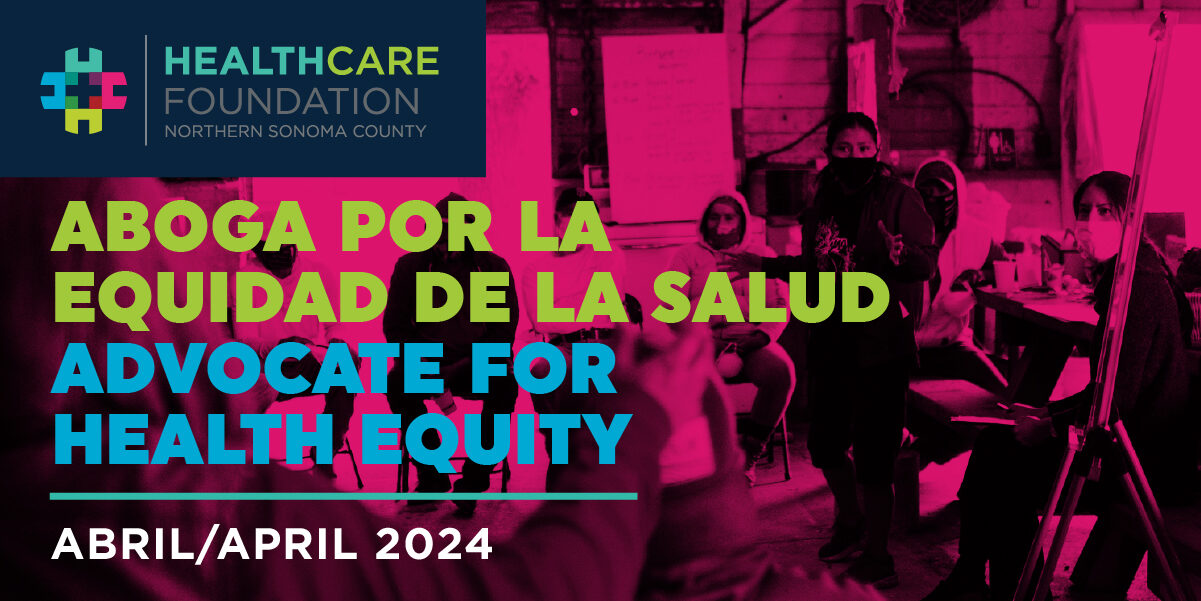
Aboga por la Equidad da la Salud | Advocate for Health Equity
This month we celebrate the Mental Health Talent Pipeline's fifth year by speaking with alumna Catalina Frausto and supporter Mark Freed. We also prepare to bid farewell to ED Kim Bender with a retrospective of her leadership these past four years.
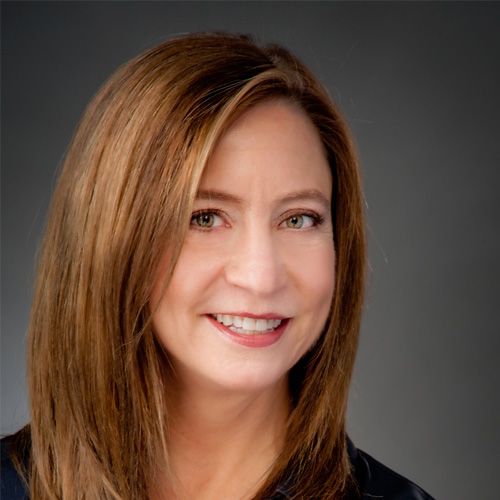
Dear Friends,
The Healthcare Foundation, with our community of partners and supporters, has done much to advance health equity in northern Sonoma County since 2020. As the Healthcare Foundation carefully manages its upcoming leadership transition, I wanted to share a few words of gratitude for Kim Bender, our outstanding executive director over these last four years.
In January of 2020, as then Board Chair of the Healthcare Foundation, I was introduced to Kim at the urging of a mutual colleague. At that time, the Healthcare Foundation was well along in our search for a new executive director, and we had a number of promising candidates.
Yet my first conversation with Kim Bender was a revelation: Here was someone who passionately valued and expressed what I had always seen as the heart of the Healthcare Foundation’s role: bringing people together around common values to increase access to healthcare in our part of the world. The success of the Healthcare Foundation has always been based on the strength of community.
During Kim’s time at the head of the organization, the Healthcare Foundation has brought a greater focus on health equity and justice, as measured by the community-centric, inter-agency collaborations such as:
- The growth of our Mental Health Talent Pipeline and launch of the Bilingual, Bicultural Clinical Training Program
- Our emergency granting for a coordinated response to the pandemic
- Kickstarting development of county-wide Community Response Teams
- Instigating public convenings toward community-led visioning and planning for Community Wellness Centers in Cloverdale, Healdsburg, and Windsor
And frankly much more that I don’t have room to go into here, some of which is detailed in the article below.
As Kim prepares to welcome and onboard our new executive director, (whom we will introduce very soon!), her exceptional legacy of community-building as both practice and value leaves the Healthcare Foundation on the strongest possible footing.
We will miss her greatly, even as we celebrate her decision to pursue in retirement her own long-standing dreams and projects. She has guided this organization so capably, wisely, and compassionately through these unprecedented times of crisis—and opportunity—for public health.
Thank you, Kim.
And thank YOU, for being a part of this community, and working with us to ensure the health and wellbeing of everyone in our region remains our collective focus and value.
With my deepest respect,

Barbara Grasseschi
Former Board Chair
Mental Health Talent Pipeline Spotlight: Catching Up with Catalina Frausto
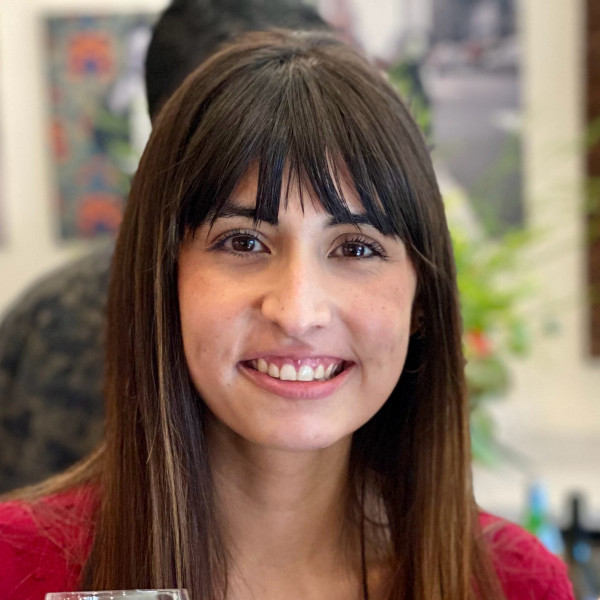
Catalina Frausto graduated with a master’s degree in counseling psychology from USF Santa Rosa in 2022, with support from a Mental Health Talent Pipeline scholarship. Today, she is a bilingual, bicultural clinician with SOS Community Counseling, a nonprofit established in 1993 in response to the mental health needs in the community and schools of Sonoma County. As the organization explains on its website, SOS is dedicated to providing vulnerable families, children, and individuals the highest quality, compassionate, and skilled mental health counseling services at minimal or no cost.
Catalina spent her third year in the USF graduate program as a trainee in SOS’s Cloverdale branch, as a school-based therapist serving high school and middle school students and their families. Upon graduating, SOS hired her full-time to work on-site at Washington Middle School and Cloverdale High School. This year, Catalina started a new position as SOS’s main clinician at Windsor High School, which also happens to be her alma mater.
We recently caught up with Catalina to learn about the work she’s doing at Windsor High School and her perspective on the needs of young people in the community.
Can you describe your current role?
I’m the site manager at Windsor High School. I’m the main clinician here. SOS was formerly on-site at Windsor High School, back before the pandemic. This is the first year we’re back. We’ve been adapting and streamlining our operation, coordinating with the school. As you know, SOS is currently involved in a merger to strengthen its services to the community. In terms of our school-based programs, these will eventually transition to Child Parent Institute (CPI).
Windsor High School is great in that they offer a lot of emotional and behavioral health support, including mental health professionals, here on campus. They have a new Wellness Center that opened up in January. They have their academic counselors as well. If a student is in crisis, they have many people to go to for help. If they want ongoing services, that’s where we come in. We put them on our caseload and see them on a weekly basis for eight to ten weeks.
The Mental Health Talent Pipeline Turns Five! A Conversation with Supporter Mark Freed
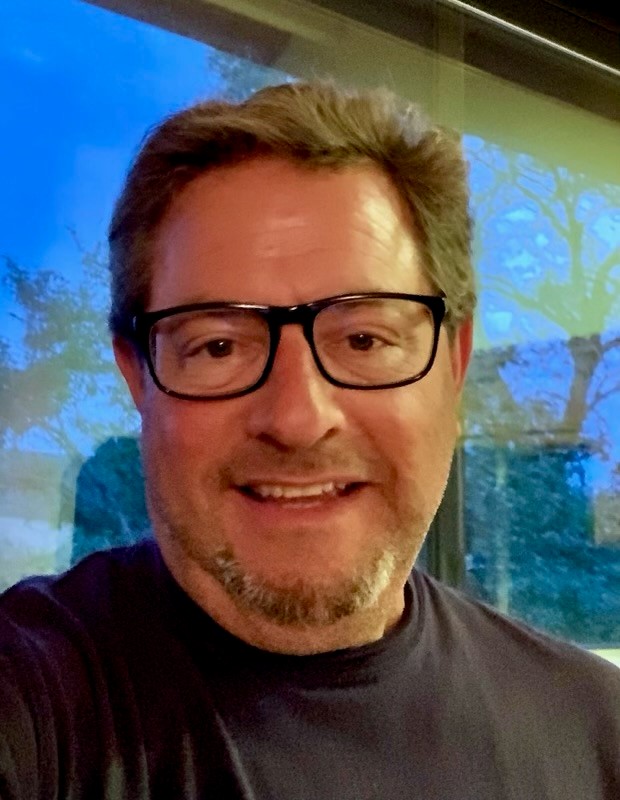
On the occasion of this year’s fifth anniversary of the Healthcare Foundation’s Mental Health Talent Pipeline (MHTP), we spoke with Mark Freed, an early supporter of the scholarship program who was instrumental in helping to launch MHTP as a pilot project aimed at building professional capacity to narrow the gap in bilingual and bicultural mental health services for our region’s Latine residents.
After spending nearly 3 decades in San Mateo County working for a global semiconductor company, Mark relocated to Healdsburg in 2018 to live on a Cabernet/Zinfandel vineyard and make wine. With a philanthropic history focused mainly on education and saving the natural environment, and having recently established his own charitable foundation, Mark began familiarizing himself with the landscape of nonprofits in Sonoma County, eventually coming into contact with the Healthcare Foundation and former executive director Debbie Mason.
Impressed by the organization’s accomplishments and its vision for northern Sonoma County—and, in particular, by the emerging idea of a scholarship program that could build a pipeline of bilingual and bicultural mental health providers available to serve Spanish-speakers in the region—Mark soon joined Marc and Jeanie Kahn and Steven Ungerleider in providing essential seed funding to test the concept.
Since that successful pilot year, MHTP has evolved, in partnership with USF Santa Rosa, into a full-tuition scholarship and has also grown to support paid local traineeships to ensure bilingual/bicultural graduate students in counseling psychology can afford to continue their education by serving communities here in northern Sonoma County.
To date, the Mental Health Talent Pipeline has supported a total of 21 graduate students in achieving their MFT master’s degrees. As third-year trainees and eventually full-time practicing clinicians, those MHTP program participants have collectively served some 2,800 unique individuals, and counting, across northern Sonoma County. Moreover, through positions with local school districts and organizations like SOS Community Counseling, many of those served have been children and their families.
In order to build on this successful model, and sustain and grow the MHTP program over the next five years, Mark has recently joined a group of generous supporters in putting forward a $50,000 challenge match for new and lapsed donors. For more information on how to support this effort and match your contribution dollar-for-dollar, please visit this page.
Reflections on the Healthcare Foundation’s Developing Role in Sonoma County
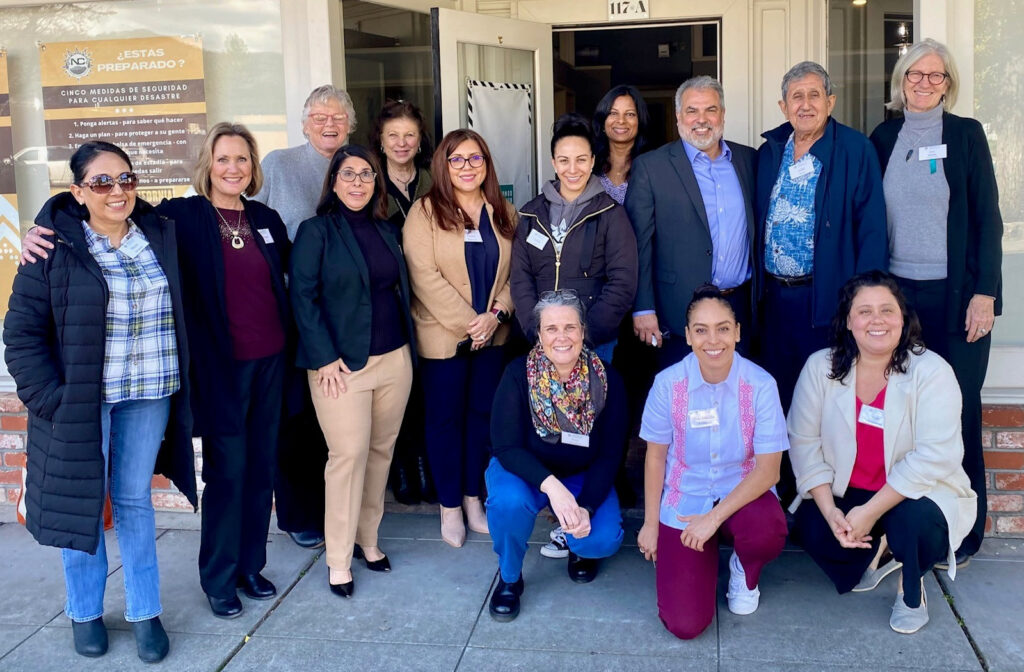
Front Row, L-R: Erin Westphal, The SCAN Foundation; Dr. Daniela Dominguez, On the Margins; Jade Weymouth, La Familia Sana
As my time at the Healthcare Foundation comes to a close, I wanted to look back on the Healthcare Foundation’s evolving role, particularly around our granting strategies. Over the last four years, the Healthcare Foundation has distributed $2.8M in grants to organizations throughout the region. We recently took a look at the breakdown of grants by geography in northern Sonoma County. We also looked at how much money was distributed to partner organizations whose service areas may include northern Sonoma County, but who are located in Santa Rosa or elsewhere. When a grant to one of those organizations was specifically focused on a northern Sonoma County city, we associated those grant dollars with that focus. Here is the percentage distribution of grants 2020–2024:
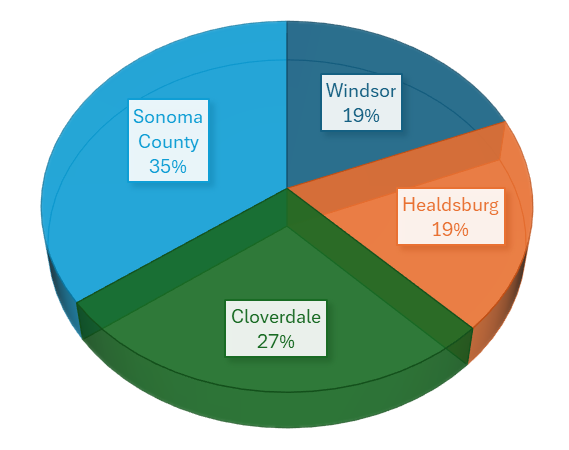
- Cloverdale 30%
- Healdsburg 19%
- Windsor 16%
- Sonoma County 36%
Cloverdale is both the most isolated city and has the highest needs, with more poverty and a high percentage of farmworker residents, so it makes sense that nearly one third of the Healthcare Foundation grants since 2020 ($827,508) has gone to organizations serving that area. Also not surprising is that the amount of grants distributed to Windsor ($430,125) and Healdsburg ($518,699) was roughly the same.
What did surprise me, however, though on reflection it makes sense, is the amount distributed to organizations located in other areas of Sonoma County, but whose services in most cases include Windsor, Healdsburg and Cloverdale ($987,613). I thought it worth tracing the history of the Healthcare Foundation’s role in the county to better understand this distribution.
Sponsorships Available Here
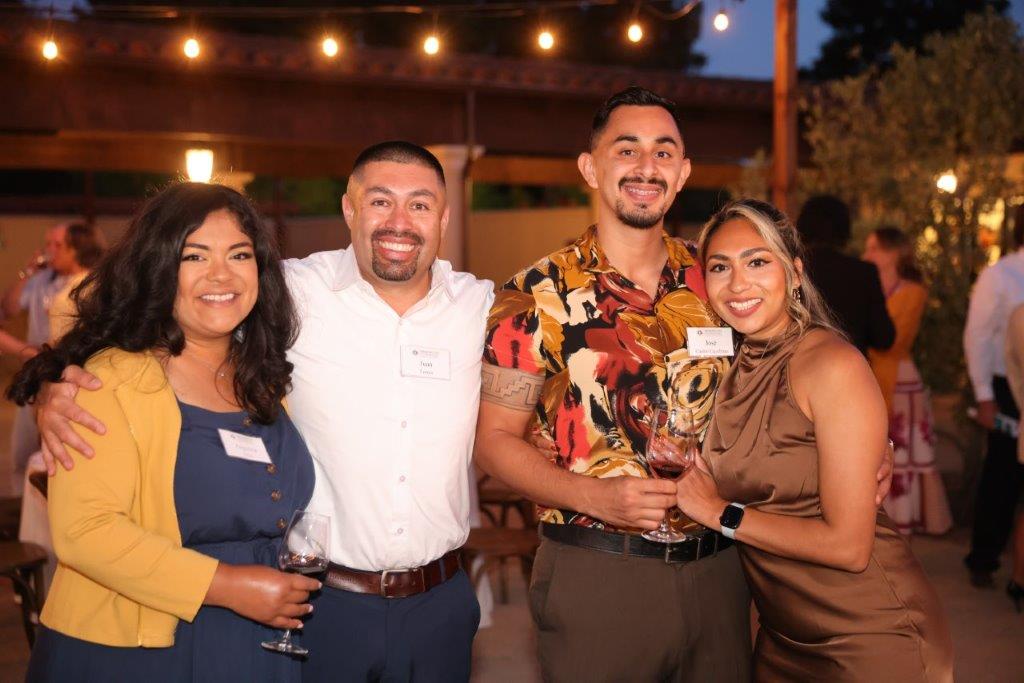
This year’s NOCHE DE AMOR: A Benefit for Health Justice is shaping up to be a very special evening and we hope you will join us. The festive event brings together our supporters, grantees, and other stakeholders in a celebration of our diverse and vibrant community. Join us for fabulous food, wine and cocktails/mocktails, and music by The Curtis Family Cnotes and Mónica María. Further highlights, overseen by Mistress of Ceremonies Ariel Kelley, include a keynote address by civil rights attorney and poet Bernice Espinoza, an inspiring testimonial from one of our Mental Health Talent Pipeline scholarship recipients, and a special salute to Executive Director Kim Bender on the occasion of her retirement—PLUS, the opportunity to meet our new Executive Director!
We kindly ask you to join us if you can as a sponsor for NOCHE DE AMOR, either as an individual or on behalf of your business. Sponsorships range from $1,000 to $50,000, with attractive benefits including on-stage and sponsor reel recognition. Your sponsorship supports the Healthcare Foundation’s health equity initiatives, including our Mental Health Talent Pipeline.
We can’t wait to see you there!

Related News + Stories
Invest in Our Community
Your support is vital to our collective vision of eliminating health inequities in northern Sonoma County.
Donate
